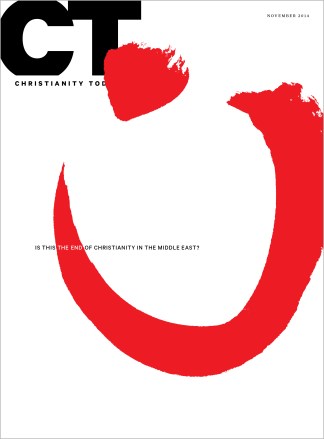I have never eaten an awesome meal. I’ve never driven an awesome car or taken an awesome vacation. I haven’t danced to an awesome song or streamed an awesome video. I do, however, know an awesome God.
My history with the word awesome goes back to my childhood, when my father—an amateur linguist and professional theologian—gently corrected my early attempts to apply that word (lit. “inspiring fright”) indiscriminately. In our family, we reserved the adjective for the One whose name is great and awesome (Ps. 99:3).
My dad’s point was not that awesome itself was some sacred incantation only for the divine (the lover in Song of Solomon, for example, ascribes awesomeness to his bride). He simply wanted me to acknowledge with my words that, in both character and magnitude, God is different from deep-dish pizza.
We live in a culture of inflated language. Our text messages and e-mails explode with exclamation points and smiley faces—and we suspect less enthusiastic communicators of being sarcastic or curmudgeonly. Our everyday language swells in an era where immediate eclipses thoughtful, where the objective meaning of words is questionable, and where affirmation is prized. Parents, teachers, and coaches praise children effusively for attempting even basic tasks. And our social media statuses daily attract hundreds of thumbs-ups. As they sing in The Lego Movie: “Everything is awesome.”
But if everything is awesome, then nothing is.
In her book Talking the Walk, Marva Dawn asks, “In a society . . . in which we use words like extraordinary and stupendous to describe laundry soaps, what words do we have left to describe breathtaking grandiosity?” We have blasted through our list of superlatives and are now supplementing with punctuation and emoticons. Often the words themselves are beside the point.
For people redeemed by a God who speaks, words still matter. “A word fitly spoken is like apples of gold in a setting of silver” (Prov. 25:11, ESV used throughout). Saying the right word at the right time is a thing of beauty. Jesus urges us to use language precisely, warning against calling anyone a fool who isn’t, and foretelling a day when “people will give account for every careless word” (Matt. 5:22; 12:36).
“And so,” writes Bret Lott in Letters and Life, “as believers, and as those made in God’s image, who among us can say, ‘That’s good enough,’ when we know we haven’t given our best to find the exact word for the moment at hand?”
It’s easy to respond to everything from an ice-cream cone to a job offer with “Great!” It’s easy, but is it true? And where does our habit of exaggeration leave us when we must put words to our great God?
After I moved to Mississippi, the way Southerners talked about each other puzzled me. Surely not all women could really be “sweet,” or their children “angels.” Eventually, I realized that in the South, “sweet” was the baseline from which an acquaintance could ascend to “very sweet” and then beyond to “so, so, sweet!” My scale was not the same.
Christians, too, use a different scale. Our language sets us apart and reflects a reality that only the Lord’s people understand. If you don’t know our God, you might think a movie is awesome, but if you meet him, you’ll understand what awesome truly is. Careful language testifies to the world as it reflects our truth-telling God.
Thirty years after my father’s loving censorship, I still think twice before using awesome. I recently overheard my own 5-year-old child telling a neighbor, “I don’t say awesome about toys. I’m saving some good words for God.”
This side of heaven, of course, even the most exalted language fails us. If we multiply praises like Moses—“Who is like you, O Lord, among the gods? Who is like you, majestic in holiness, awesome in glorious deeds, doing wonders?” (Ex. 15:11)—or if we choose to save some good words for God, our words and symbols are still limited. Like William Shakespeare, frustrated by the insufficient image of a summer’s day to capture the unfading beauty of his beloved, we lack language to adequately express the fullness of our Lord.
And when the escalating emoticons and exclamation points begin to cloy, we might do well to follow the example of Job: “I lay my hand on my mouth” (40:4). In the aftermath of God’s self-revelation, Job responds in the only way he can: silence. In a world of babble and hyperbole, standing before an awesome God, sometimes we have nothing to say at all.
Megan Hill lives in Mississippi with her husband and three young sons. She blogs at SundayWomen.com.










